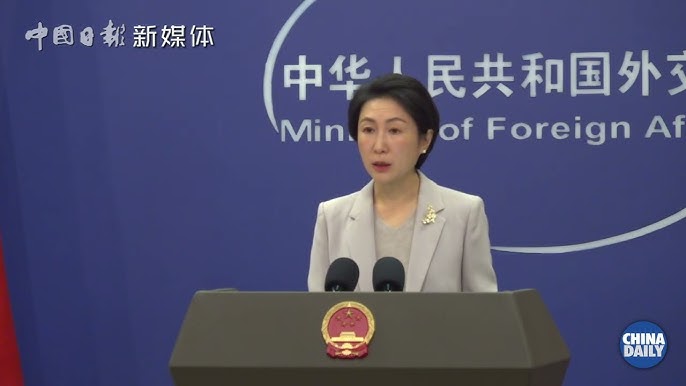A new diplomatic rift has opened between Australia and China after Australia publicly accused Beijing-linked hackers of orchestrating a series of cyberattacks in 2024 that allegedly cost the country A$12.5 billion (US$8.1 billion) in economic losses. China has swiftly rejected the claims, calling them unfounded and politically motivated.
The confrontation stems from statements made by Australia’s top intelligence official, who revealed that two highly sophisticated hacking groups—believed to be tied to Chinese state security services—penetrated multiple sectors of Australia’s critical infrastructure last year. According to Australian officials, the intrusions were not isolated incidents but part of a long-running, coordinated campaign aimed at gathering sensitive data and potentially preparing for future sabotage.
ASIO: Not Just Espionage — Potential Sabotage Preparation
Mike Burgess, Director-General of the Australian Security Intelligence Organisation (ASIO), delivered the warning during a national security forum attended by business leaders, policymakers and cybersecurity experts. He stated that the hackers conducted extensive probing of telecommunications systems, energy grids, water networks, transportation infrastructure and major financial institutions.
Burgess described the activity as “alarming” and said it demonstrated “a clear intention to identify weaknesses that could be exploited in a time of heightened geopolitical tension.” While cyber espionage is not new, Burgess emphasized that these operations went beyond traditional intelligence-gathering. The tactics, he said, appeared designed to create opportunities for cyber-enabled sabotage—attacks that could disable critical services or cause widespread disruption across the country.
According to Burgess, the economic toll for 2024 was staggering. Around A$2 billion of the losses stemmed from stolen intellectual property, including proprietary research and industrial secrets. The remaining losses were attributed to broader economic damage: compromised competitiveness, remediation costs, operational disruptions and reduced trust in national infrastructure systems.
Government Steps Up Its Public Accusations
The Australian government’s decision to publicly name China in connection with the attacks marks a notable escalation in how Canberra handles cybersecurity threats. For years, officials have quietly attributed cyber incidents to foreign states without making those conclusions public. The latest statement, however, signals a shift toward transparency—perhaps also toward deterrence.
Government ministers emphasized that Australia “will not stay silent” in the face of persistent cyber intrusions targeting its economy and national security. Officials said the country must show it is willing to call out hostile actions, even when they originate from one of Australia’s largest trading partners.
They also urged businesses to strengthen their cybersecurity practices, warning that advanced state-linked hackers often exploit known but unpatched vulnerabilities. Partnerships between government agencies, industry leaders and international allies are expected to intensify in the coming months.
Beijing Pushes Back Hard
China responded within hours of the accusations, calling them “groundless,” “irresponsible” and “politically motivated.” A spokesperson for China’s foreign ministry insisted that Beijing opposes cyberattacks in all forms and accused Australia of fabricating claims to justify expanded defense and intelligence measures.
Chinese officials also criticized Australia for failing to provide publicly verifiable evidence. They argued that cyber attribution is highly complex, easily manipulated and often misused for political gain. China has long insisted that it is frequently the target of cyberattacks itself and has accused Western nations of hypocrisy on cybersecurity issues.
The strong rebuttal reflects China’s sensitivity to allegations of cyber espionage, especially at a time of heightened global scrutiny over state-sponsored hacking groups. It also underscores the broader geopolitical tensions between Beijing and several Western governments, many of which have expressed growing concern about cyber operations targeting critical infrastructure.
The Broader Geopolitical Context
The accusations come as Australia continues to deepen security ties with partners such as the United States and the United Kingdom through agreements like AUKUS. Cybersecurity is a central pillar of these collaborations, and the willingness to openly attribute cyberattacks suggests a coordinated strategy among allied nations to confront state-backed hacking more transparently.
At the same time, Australia and China have spent the past two years cautiously rebuilding diplomatic and trade ties after a period of significant tension. The latest allegations threaten to chill that progress. Analysts warn that the situation could complicate ongoing efforts to stabilize the relationship, especially if China interprets the accusations as part of a broader containment strategy.
Business and Public Reaction
The business community has reacted with concern, particularly sectors related to finance, telecommunications and critical infrastructure. Many companies have been quietly battling a rise in cyber incidents, often attributed to highly skilled threat actors. The government’s announcement, while alarming, has been seen by some industry leaders as a necessary wake-up call.
Cybersecurity experts say the alleged A$12.5 billion in losses highlights the growing economic impact of cyber operations. Stolen research can undermine innovation, while compromised systems can cost billions in repairs and lost productivity. The true cost, they warn, may be even higher once long-term competitive disadvantages are accounted for.

Public reaction has been mixed. Some Australians view the government’s transparency as overdue, while others worry the accusations could inflame tensions with China, which remains a major export market for Australian goods.
What Happens Next
Australia is expected to significantly expand its cybersecurity defenses, including increased investment in threat detection, incident response and infrastructure protections. Government officials say preventing further intrusions will require not only new technology but also collaboration across sectors and borders.
Internationally, the dispute is likely to factor into broader debates about cybersecurity norms, responsible state behavior in cyberspace and the challenge of attributing attacks with confidence.
For now, the standoff remains unresolved. Australia insists it will continue to expose and counter foreign cyber threats, while China maintains that it has been unfairly targeted. As both nations navigate this increasingly fraught digital battleground, the incident underscores a growing reality of global geopolitics: the front lines of conflict are no longer defined by borders, but by networks.












